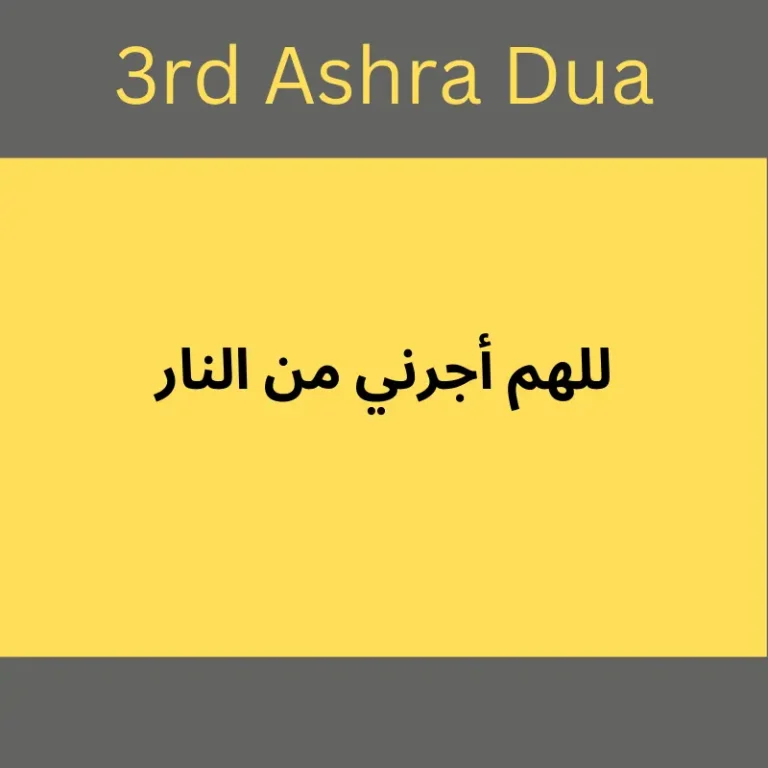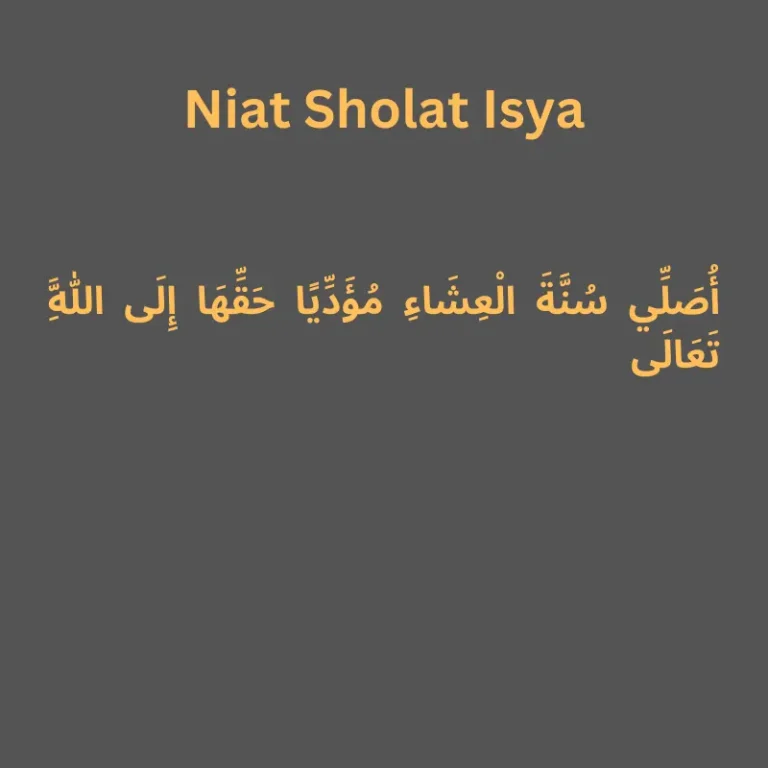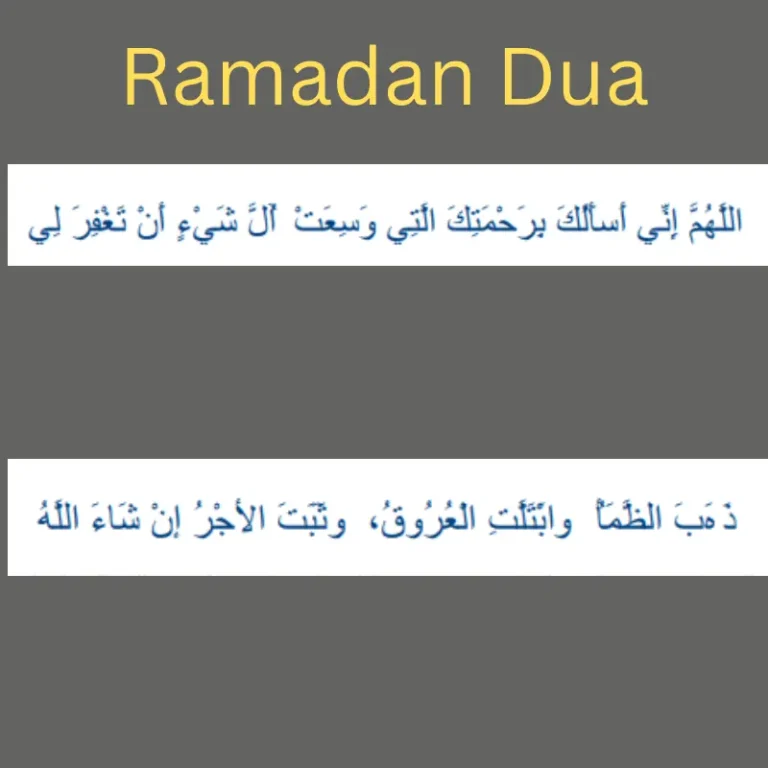In Islamic culture, dua holds a significant place. Muslims express their gratitude and seek blessings from the Almighty through dua, which serves as a means of connection between the individual and the Divine. One such moment to offer gratitude and seek blessings is before partaking in meals. The act of reciting a dua before meals not only carries spiritual significance but also allows individuals to cultivate mindfulness, gratitude, and a sense of togetherness with their loved ones around the table.

کھانے سے پہلے کی دعا
“میں نے الله کے نام کے ساتھ اور الله کی برکت پر کھانا شروع کیا”
Why Say Dua Before Meals
This dua is a way of seeking Allah’s blessings and expressing gratitude for the food provided. It is also a reminder to eat with mindfulness and intention, and to seek Allah’s pleasure in all our actions.
The Spiritual Significance of Meals
In Islamic teachings, meals are not merely a physical act of sustenance but also carry spiritual meaning. The act of eating is considered an opportunity for spiritual nourishment, where individuals have the chance to renew their intention and seek blessings for their bodies and souls. Therefore, beginning a meal with a dua allows Muslims to infuse their eating experience with spirituality and seek blessings for the food they consume.
The Prophet’s Example
The Prophet Muhammad (peace be upon him) set an exemplary standard by frequently reciting duas before meals. His actions serve as a source of inspiration for Muslims to follow in his footsteps and incorporate this beautiful tradition into their lives. By emulating the Prophet’s practice, believers not only follow a sunnah (tradition) but also experience the blessings associated with supplicating before meals.
A Simple Dua for Before Meals
One of the most commonly recited duas before meals is: “Bismillah hir Rahmanir Raheem” (In the name of Allah, the Most Gracious, the Most Merciful). This simple yet powerful dua signifies the acknowledgment of Allah’s presence and the reliance on His blessings for the meal about to be consumed. By uttering these words with sincerity, individuals invite the blessings of Allah and express their gratitude for His provisions.
The Benefits of Reciting Dua Before Meals
The practice of reciting dua before meals brings several benefits that extend beyond the act itself. Let’s explore some of these benefits:
Increased Mindfulness and Gratitude
By pausing before meals to recite a dua, individuals cultivate mindfulness and bring their attention to the present moment. It serves as a gentle reminder to appreciate the blessings they have, fostering a deeper sense of gratitude. This practice allows individuals to become more aware of the food they consume and the sustenance they receive, leading to a greater sense of contentment and appreciation.
Strengthening Family Bonds
In many cultures, meals are an opportunity for families to come together and share their experiences. Incorporating the practice of dua before meals strengthens family bonds as it encourages a collective expression of gratitude. When family members gather around the table and engage in dua together, it creates an atmosphere of unity, love, and shared spirituality, fostering a sense of togetherness and connection.
Cultivating a Humble and Grateful Heart
Dua before meals instills a sense of humility in individuals, reminding them that they are not the ultimate providers of their sustenance. By recognizing that all blessings come from Allah, individuals develop a humble and grateful heart, free from arrogance and entitlement. This practice fosters a deeper sense of spirituality, enhancing one’s character and relationship with the Divine.
Incorporating Dua into Your Daily Routine
To make dua a consistent practice, it is essential to incorporate it into your daily routine. Here are a few tips to help you establish this beautiful tradition:
Making Dua a Habit
Allocate a specific time before each meal to recite dua. By setting a regular routine, you can make dua a habit and ensure its inclusion in your daily life. Whether it’s breakfast, lunch, or dinner, take a moment to pause, reflect, and express your gratitude before partaking in your meal.
Creating a Positive Environment During Meals
Incorporate the practice of dua into family or gatherings. Encourage your loved ones to participate in reciting the dua, fostering a positive and spiritually uplifting environment. This shared experience not only strengthens family bonds but also allows everyone to benefit from the blessings associated with dua before meals.
Conclusion
Dua before meals is a cherished tradition in Islamic culture, carrying immense spiritual significance. It serves as a means of expressing gratitude and seeking blessings from the Divine. By incorporating this practice into daily life, individuals can cultivate mindfulness, gratitude, and a deeper connection with the Creator. Let us embrace this beautiful tradition and make dua an integral part of our meals, allowing our bodies and souls to be nourished both physically and spiritually.
Can dua before meals be recited in any language?
Yes, dua before meals can be recited in any language as long as the meaning remains intact. It is the intention and sincerity behind the supplication that matter the most.
How long should dua before meals be?
Dua before meals can be as short as a few words or as elaborate as an extended prayer. It is the sincerity and genuine expression of gratitude that holds the most value.
Can dua before meals be recited silently?
Yes, dua before meals can be recited silently within one’s heart. The important aspect is the connection with the Divine and the sincere expression of gratitude.
Is dua before meals obligatory in Islam?
Dua before meals is not obligatory in Islam but is highly recommended as a way to express gratitude and seek blessings.








